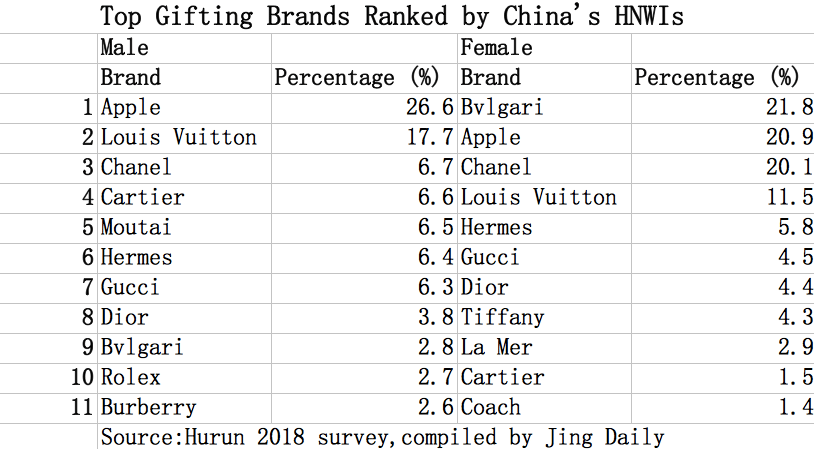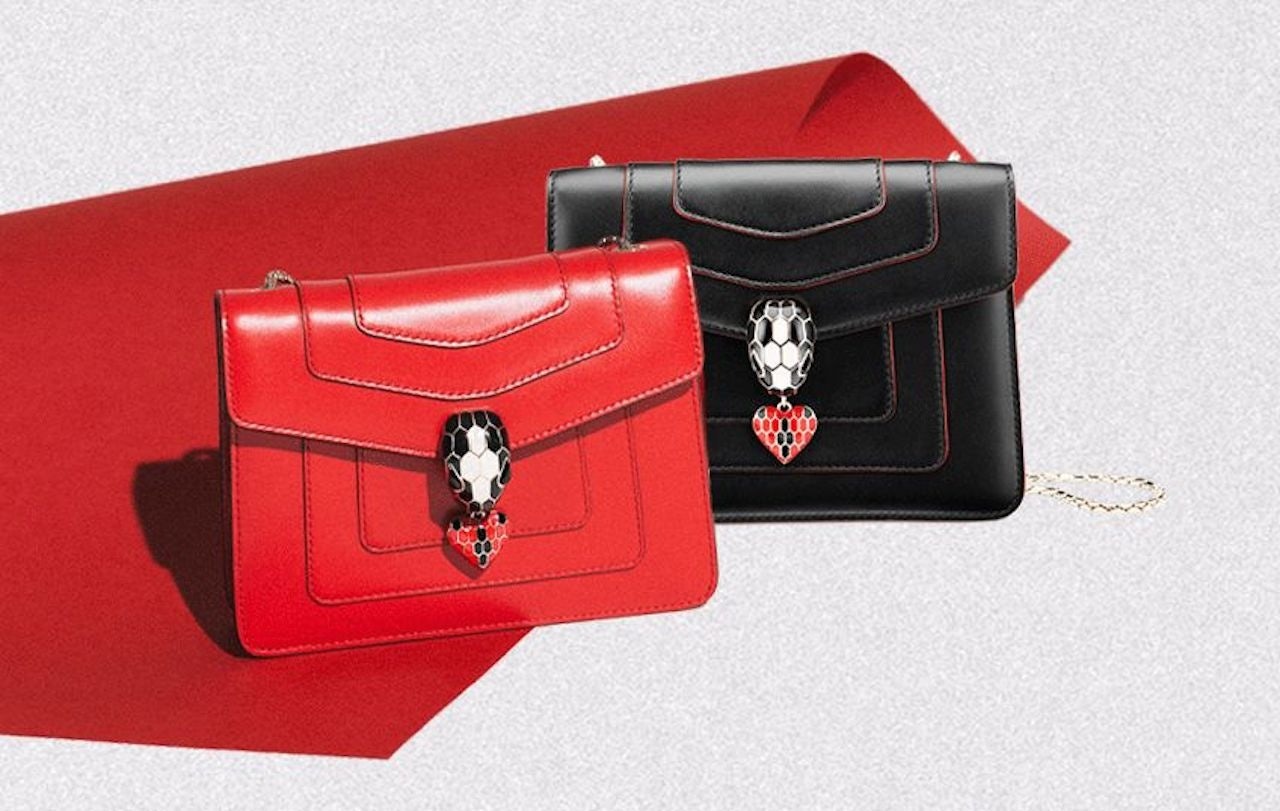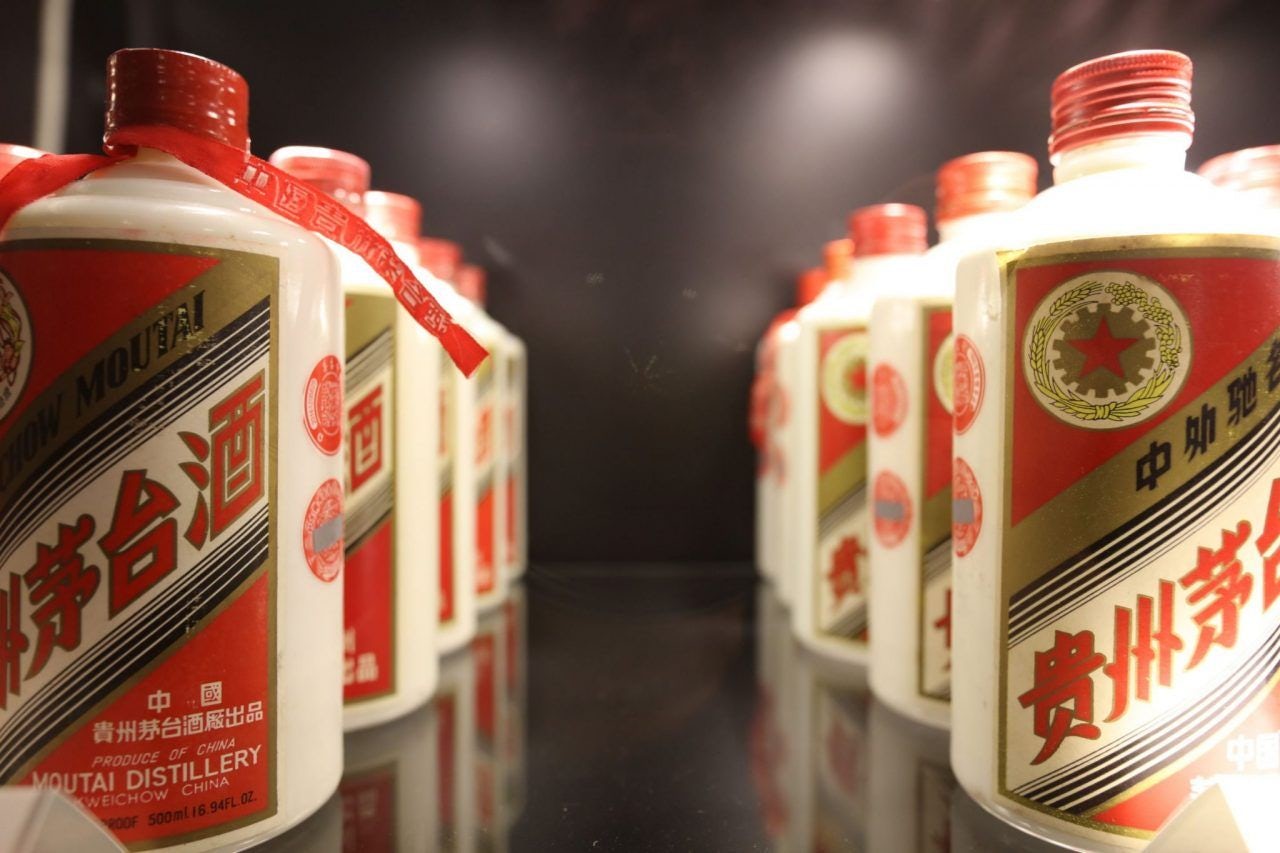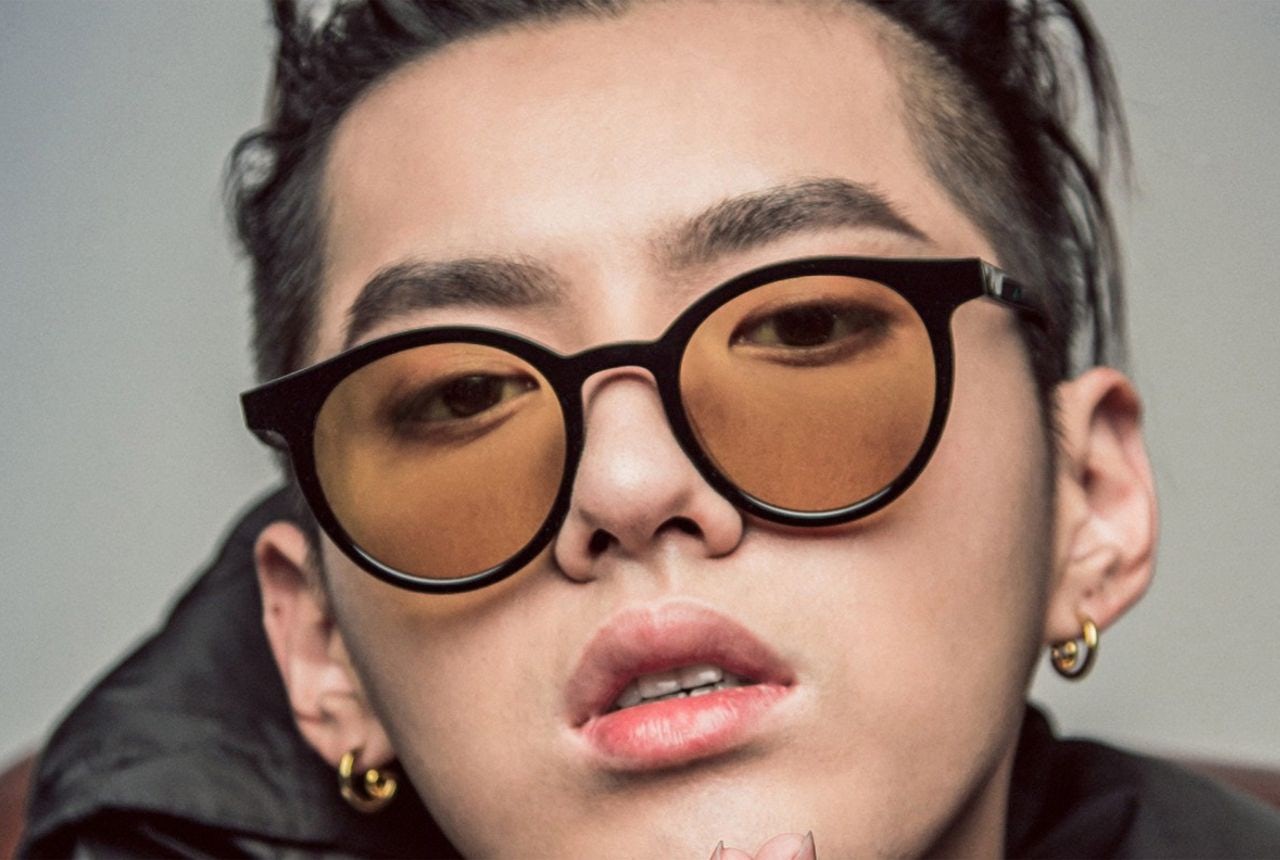Despite a crackdown on corruption, luxury gifting remains a deeply entrenched social norm in Chinese society. A recent report by the Hurun research institute examined the major international luxury brands that China’s high-net-worth individuals (HNWIs) typically look to when it comes to gift giving. The findings were based on Hurun’s survey over 436 Chinese HNWIs last year, individuals whose personal assets exceed 100 million yuan (16 million).

American tech company Apple has remained on the top of the gifting list among ultra-rich men and women for the fourth consecutive year. Despite a lukewarm response elsewhere, consumers in China’s top-tier cities were still enthused by iPhone X last November, with many even posting their order history from Apple on social media platforms.
Apple announced its fourth quarter sales performance on February 1, seeing revenues from Greater China grow nine percent year on year.
Prestige jewelry brand Bvlgari has climbed to the top of the women’s list, and ranks ninth with men. Over the past year, Bvlgari’s snake-inspired Serpenti jewelry watches and leather goods collection has become a “must-have” item for many ultra-rich Chinese women owing to the distinctive, innovative design.
Unsurprisingly, the popularity of the French luxury powerhouses Chanel, Louis Vuitton and Hermès continues, with their rankings more or less steady in recent years. Gucci and Dior also made into the top 10 lists for both men and women.
Chinese liquor Moutai was the only domestic brand that joined the rankings this year.
British fashion label Burberry’s ranking among men and Italian jewelry brand Cartier on women’s list both fell this year, despite smart attempts to appeal to younger Chinese consumers, as evidenced by their collaborations with popular celebrities like Kris Wu, Zhou Dongyu, and Lu Han.
While the brands have successfully engaged millennials, that strategy hasn’t yet paid off among the country’s HNWI customers, whose average age is 40.
It’s not all bad news for Cartier. The same report shows that the brand still enjoys strong loyalty from the HNWI population when it comes to jewelry, as do Bvlgari, Tiffany, and Chaumet. Enthusiasm for luxury watches has also remained strong to the benefit of brands such as Patek Phillip, Rolex and Vacheron Constantin.
Meanwhile, wealthy Chinese (like everyone else in China) have become more accepting of mobile payment solutions, namely Alipay and WeChat Pay. The Hurun survey indicates that the group is using credit cards and cash 40 percent less frequently as their use of Alipay and WeChat Pay rose by 20 percent and 40 percent respectively.


